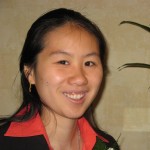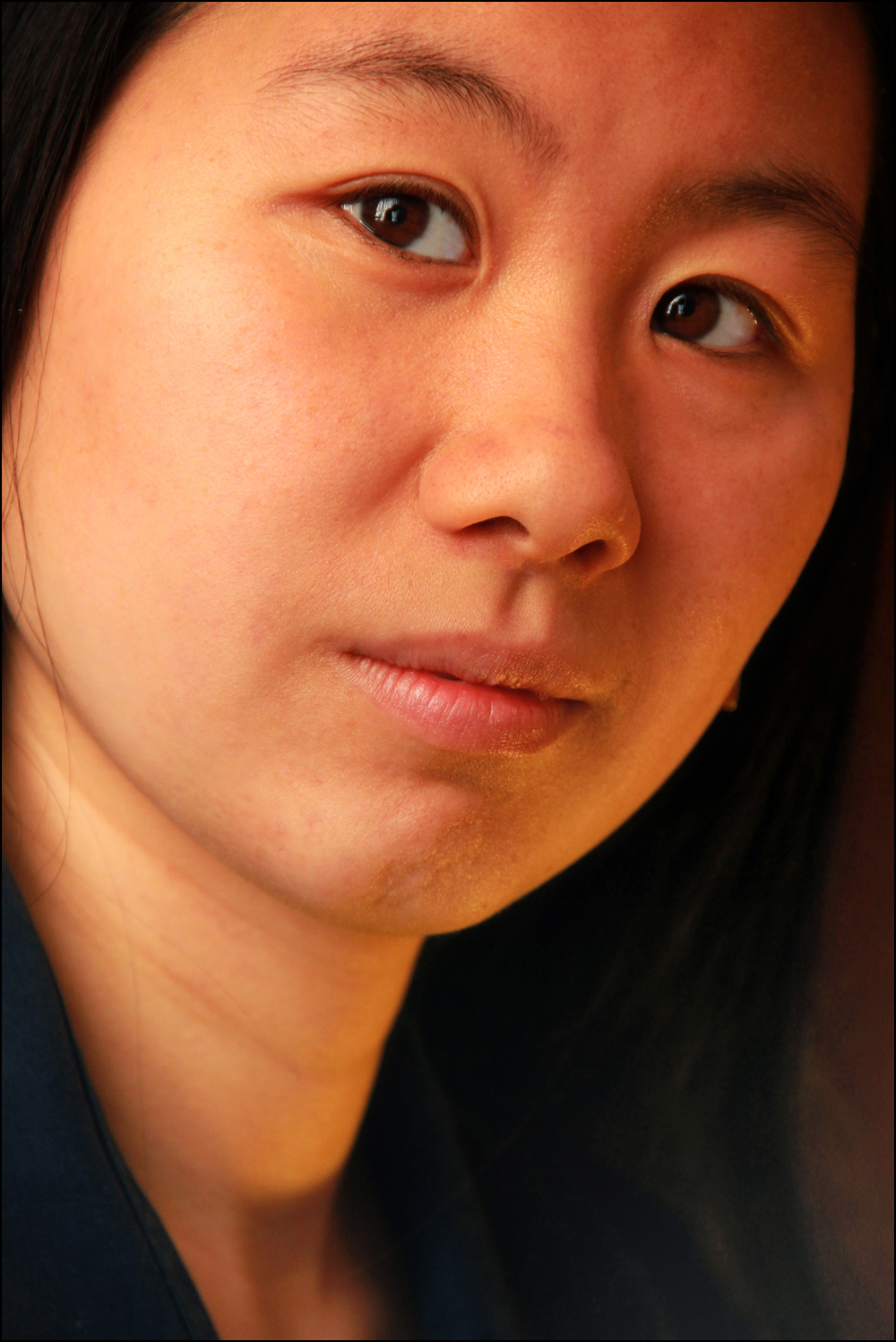Lisa Chow: Advocate and Visionary of Re-shaping the Library Landscape
by Dawn Wing
Meet Lisa Chow. She is an information professional extraordinaire whose mission is to bring people-centered design into libraries. Even before finishing library school at Pratt Institute, Lisa had already honed her skills and passion for initiating, developing and managing outcome-based projects. Currently, she is half of People Interact, a consultancy that works with libraries and nonprofits to implement creative solutions to effectively improve individual and organizational performance by focusing on the human element.Lisa also works as a Web Analyst in Brooklyn Public Library’s IT/Web Applications department where she continually seeks and implements new ways of serving patrons.
Lisa is widely recognized in the library world for her advocacy as a Special Libraries Association (SLA) Rising Star, Library Journal (LJ) Mover & Shaker, American Library Association (ALA) Emerging Leader, and Association of Research Libraries (ARL) Diversity Scholar. In this interview, Lisa provides refreshing insights for information professionals of all stages in their careers and dares us to think outside the box.
Dawn Wing (DW): What was your journey towards librarianship?
Lisa Chow (LC): When I was exploring career options for biology majors, I came across medical librarianship. While medical librarianship is what got me interested in librarianship, I have become interested in many different areas of librarianship since then and decided not to limit myself or my career.
Before college, I volunteered at the neighborhood library of Brooklyn Public Library where I started off as a book buddy, then computer coach, and then special events coordinator (probably the fanciest job title I’ve ever had).
What are my sources of inspiration? I’ve got a poster of “50 Reasons Not to Change” posted at work. You can find the poster and other sources of inspiration: http://sites.google.com/site/lisachow23/inspiration
DW: What is your philosophy as a librarian and how has this shaped your career?
LC: Designing and making libraries accessible to all, the idea of universal design. Empowering people to use information to make informed decisions. It’s about people.
DW: You have a lot of experience taking initiatives to improve library services. Could you provide some history and background information regarding your co-founding of People Interact and various (un)conferences? What was your thought process and motivation behind these initiatives?
LC: My colleague and partner-in-crime Sandra Sajonas and I co-founded People Interact. We started blogging at http://peopleinteract.wordpress.com over 3 years ago. We are passionate about helping organizations and professionals adapt in our rapidly changing world. Inspired by user experience design, our work is guided by a people-centered philosophy of making sure that people are not lost in the shuffle. We work with libraries and nonprofits to implement creative solutions to effectively improve individual and organizational performance by focusing on the human element.
What do we do:
- Design thinking and impact-based assessment: program and service design, space planning and utilization, strategic planning process, usability and user experience, workflow and processes.
- Unconferences for organizational development: staff unconferences, thematic unconferences.
- Leadership and career development: presentations, succession planning, webinars, workshops.
DW: What exactly is an (un)conference? What got you interested in spearheading (un)conferences? How did you go about planning one?
LC: An unconference is a participant-driven event where the discussion topics are determined by the participants and the focus is on the collective knowledge of the group.
I attended my first unconference in 2007, LibraryCampNYC at Baruch College: http://librarycampnyc.wikispaces.com. I really enjoyed the informalness and openness of LibraryCampNYC. I felt like I got more ideas and inspiration out of an unconference than a traditional conference.
Shortly after attending the event, Brooklyn Public Library was planning the annual staff development day and I thought the unconference concept might be a good idea to test drive and incorporate into staff development day. However, it seemed like the planning committee was well into the final planning stages of staff development day. It actually worked out better as its own event. I formed a team and Brooklyn Public Library had its first staff unconference – BPL ThinkTank in May 2008. A few years later, I was talking to a good colleague and mentor and we thought it would be great to do a health themed unconference. Shortly after, I formed a team to organize HealthCampNYC, a regional health unconference focused on using collective knowledge to improve health literacy and community health.
Organizing an unconference is like organizing any kind of event. However, there are four principles of unconferences and the law of two feet or motion.
The four principles are:
- Whoever comes is the right group of people
- Whatever happens is the only thing that could have
- Whenever it starts is the right time
- When it’s over, it’s over.
The law of two feet or motion states that “any persons neither learning from nor contribution to a group discussion must walk [or move] to another one.”
If you would like to learn more about unconferences, I co-authored a Metropolitan New York Library Council (METRO) LibGuide on unconferences. It’s a guide on unconferences and tools, resources and tips for doing your own unconference: http://libguides.metro.org/unconferences
DW: What were some reactions and outcomes from (un)conference participants? How is it different from attending a traditional professional development conference? Do you think (un)conferences inherently allow for more diverse perspectives and participation because of its openness?
LC: An unconference is a participant-driven event where the discussion topics are determined by the participants and the focus is on the collective knowledge of the group. Unconferences are about participation and its openness does allow for a better flow of ideas. However, unconferences like conferences depend on their organizers and participants/attendees.
The BPL ThinkTank unconference gave staff a chance to explore new ideas in librarianship freely in an open and informal environment. Some of those ideas included: clear and consistent communication, transparency of processes, more training opportunities, sharing accomplishments, and flexibility with technology. There were positive reactions from participants and management hosted three follow-up sessions with participants. Participants said the BPL ThinkTank unconference was productive and they liked the positive and energetic atmosphere and that they got to choose the topics. Since then, the unconference concept has been integrated into regular staff trainings and meetings. One participant said it best: “A fun, relaxed atmosphere truly fosters creativity.”
The HealthCampNYC unconference, while regional, attracted worldwide interest, with visits to the event wiki from over 800 visitors from 222 cities. We had individuals who asked if there was a way to participate remotely. Participants said the HealthCampNYC unconference helped them start collaborations, network and share resources, and that it had a great impact on the overall health conversation. Since then, we followed up with participants and as a result of HealthCampNYC, they are working on articles, partnerships, collaborations, and grant-funded projects.

DW: How does your diversity influence your work ethic?
LC: I’ve got a “50 Reasons Not to Change” poster at my desk with tidbits like “We’ve never done that before” and “We’ve always done it that way”. I hear a lot of reasons to not change the ways libraries have always done things. Sometimes things need to change in order to improve library services and processes for both staff and patrons. As a result, I find myself doing things differently than many of my colleagues. For example, I’ve initiated pilot projects and organized events without management approval. It’s easier to apologize than to ask for permission. An example is the Library Workers’ Skill Share event. I teamed up with two other Library Journal Movers & Shakers to organize the event in an effort to provide support for all NYC library workers who are job hunting, unemployed, facing potential layoffs or simply looking to freshen up their skills. Over 80 people attended the event, which included panels, workshops, one-on-one speed mentoring, resume review, speed business coaching sessions, and a networking & resource room. My co-event organizers, being in the education and job division, were allowed to use work time, since it’s a job-related event. However, I was not in that division, so I had to use my own time. This is the kind of library tradition way of doing things that doesn’t make any sense. For me, it didn’t matter whether or not I had to use my own time, because I was co-organizing this event as a librarian, regardless of the organization that I was working at. It just would have been better and a little easier if the library organization didn’t give me a hard time about it while I was trying to organize an event for library workers in less than three months.
DW: What skills or talents do you recommend that diverse professionals might develop as they seek to enter and grow in various areas of librarianship?
LC:
- Study what you’re interested in, whether that means generalizing or specializing in library school.
- Set up informational interviews to learn more about topics and areas of interest.
- Step out of your comfort zone.
- Be comfortable and familiar with technology, not necessarily knowing and learning every software/tool/platform out there but being aware and able to make decisions about what technology would be useful and relevant to your users (staff and/or patrons).
DW: What advice would you give young professionals, especially those from diverse backgrounds, who are interested in becoming a library leader?
LC: Take advantage of scholarships, stipends, various mentoring and leadership programs and initiatives that support early career librarians or library school students and/or diversity in the profession. Find a mentor. Be a mentor. Find a partner-in-crime. Step out of your comfort zone. Don’t be afraid to nominate yourself. I nominated myself for SLA Rising Star. You’ve gotta toot your own horn.
Check out resources and slides from Lisa Chow’s leadership and career development presentations and webinars: http://peopleinteract.wordpress.com/portfolio/leadership-and-career-development
To read more about Lisa Chow’s projects, please visit her e-portfolio:
http://sites.google.com/site/lisachow23/special-projects
Editing assistance provided by Melissa Cardenas-Dow.

